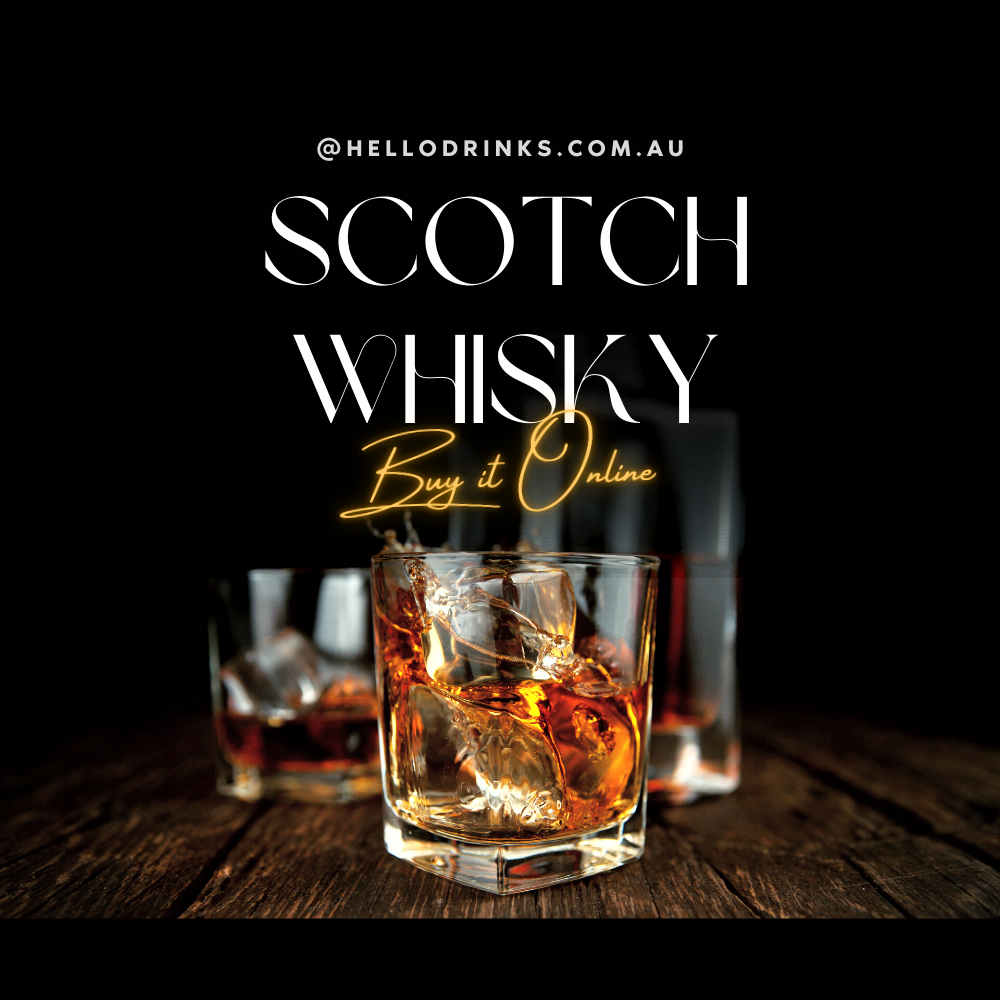
Scotch Whisky: A Guide to the World's Best Whisky
Take for instance PERSONAL, a medium-bodied, smoky Scotch whisky that seamlessly blends notes of vanilla, roasted nuts, and whispers of chocolate, providing a sensory experience that mirrors the rich heritage of Scotch whisky.
The Whisky Production Process
Scotch whisky is meticulously distilled from malted barley, a grain that has been allowed to germinate before being halted with water. The resultant 'malt' is what forms the backbone of Scotch whisky. Post distillation, the liquor is given ample time to mature in wooden barrels, usually charred or charred and then finished in new oak casks. This age-old process gives Scotch whisky its distinctive flavor profile that has remained unrivaled by other spirits. It's aged for a minimum of three years in these oak barrels, although some variants age for up to an impressive 50 years.
In the realm of blended whiskies, the flavor profile of the blend takes center stage. Blended Scotch whisky is a harmonious fusion of multiple whiskies, with the blend's complexity being a testament to the art of blending. The final blend is curated by a master blender, whose discerning palate dictates the blend's character. Some of the popular blended whiskies include blended Scotch, blended Scotch and Speyside, blended Scotch and Lowland, and blended Scotch and Highlands.
Types of Whisky
As the most popular spirit globally, whisky accounts for one-third of all alcoholic beverage sales. Its wide-reaching popularity is owed to the several types of whisky available, which can broadly be classified into four categories: Single Malt, Single Grain, Blended, and Canadian.
Single Malt whisky hails from a single grain variety, typically barley, corn, or rye, and is often aged longer than its counterparts. The minimum aging period is two years. On the other hand, Single Grain or 'pure grain' whisky is distilled from only one type of grain, with a minimum aging period of three years.
Aged Whisky
The late 1800s saw the industrialization and commercialization of whisky distillation, leading to novel varieties making their way into the market. Since then, the Scotch whisky industry has seen tremendous growth, with a myriad of unique and flavorful expressions now available to whisky connoisseurs.
Throughout this journey, we aim to delve into the nuances of the distillation process, explore the ingredients that make whisky special, and understand how they contribute to each expression's unique characteristics. We'll also unravel the captivating history of whisky, tracing its rise to global popularity. Additionally, we'll demystify the differences between single malt Scotch whisky and blended whisky, alongside exploring the different regions of Scotland.

Distilleries and Brands
Creating a world-class Scotch whisky involves a meticulous selection of ingredients and adherence to traditional distilling techniques. Each region across the globe imparts its unique characteristics to its whiskies, determined by the type of barley, yeast, and water used in the process.
Scotch whisky comes in several styles, including single malt, single grain, blended malt, and blended whisky. Single malt Scotch whisky and single grain Scotch whisky are both made from a single grain, but their production processes vary. Blended Scotch whisky is a carefully crafted mixture of different types of Scotch whiskies. These blends can either be from different regions or different malt or grain whisky types.
Where to Find Whisky
The United Kingdom, and specifically Scotland, is the birthplace of some of the world's best-known whiskies. As the creators of Scotch, they continue to produce some of the world's most exquisite whiskies. Often referred to as "single malt" whiskies, they are produced from malted barley, distilled, and matured in oak casks.
Scotland, in particular, boasts an array of globally recognized whiskies, the Scotch produced here is widely considered some of the world's finest. These whiskies, often referred to as "single malt" whiskies, are produced from malted barley, distilled, and matured in oak casks. The Scots refer to it simply as "Scotch," and many whiskies available on the market will carry the "Scotch" label in their name.
Types of Whisky and Food Pairings
Whisky, being a diverse spirit, pairs splendidly with a broad spectrum of food. Grain whisky, for instance, pairs best with lighter, slightly sweet food. Consider pairing it with chicken, vegetables, or pasta. Light-bodied whisky balances out spicy food and seafood. Medium-bodied whisky pairs best with food that has a rich flavor profile like beef, lamb, or pork. For a strong-bodied whisky, go for bold flavors such as chocolate, coffee, and spices.
Whisky Bar: A Brief History
A 'whisky bar' or 'Scotch bar,' as it's known in Scotland, serves Scotch whisky and is commonplace around the globe. They offer a variety of cocktails, spirits, and beer, in settings ranging from casual to upscale. They often also serve food.
Scotch Whisky Cocktails
Scotch whisky forms the base for many of the world's most loved cocktails. Classic Scotch whisky cocktails have roots tracing back to the 1800s, while their modern evolution continues to this day. From the casual drinker to the cocktail connoisseur, Scotch whisky cocktails cater to a wide array of preferences.
The World of Scotch Whisky
Scotch whisky stands as Scotland's spirit, the only country to produce its own distilled beverage. This drink is made by malting barley and distilling the resultant mash. Scotch whisky is typically produced in three categories: Lowland, Highland, and Single Malt.
Lowland Scotch is the most common, characterized by a strong and relatively inexpensive spirit made from twice-distilled malted barley. Highland Scotch is more costly, offering a much richer flavor, produced from malted barley distilled once. This distillation process results in a richer, more distinctive flavor, albeit produced in very limited quantities. Single Malt, produced from malted barley distilled only once, offers the strongest and most distinctive flavor.
Scotch Whisky Cocktails
Scotch whisky has a rich history as one of the world's favored spirits and has inspired many of the world's best cocktails. Enjoyed neat or mixed, Scotch whisky is a versatile spirit that pairs excellently with various flavors, from citrus and fruits to herbs and chocolate.
Blended Scotch whisky is the most common type of Scotch whisky and is the result of mixing various single malts and single grain whiskies produced in Scotland and distilled in one distillery. The blending process gives birth to some of the most complex, elegant, and flavorful whisky in the world. Scotch whisky can be made from various grains, including barley, corn, rye, and wheat.
In conclusion, Scotch whisky stands as a testament to the timeless tradition of distillation, carrying with it a unique, complex flavor profile that continues to be a favorite among spirits worldwide.
Brands Worth Exploring
If you're interested in delving into the world of Scotch whisky, there are a number of brands worth exploring, each bringing their own unique flavors and histories to the table.
- Glenfiddich: Known as the world's best-selling single malt whisky, Glenfiddich offers a range of expressions from their classic 12-year-old to the rare and aged 50-year-old.
- The Macallan: With a reputation for producing whiskies of extraordinary depth and complexity, The Macallan offers a range of expressions including Sherry Oak, Double Cask, and Triple Cask Matured whiskies.
- Talisker: As the only distillery on the Isle of Skye, Talisker's whiskies are known for their smoky peat character and maritime influence, with popular expressions such as the 10-year-old and Distillers Edition.
- Lagavulin: Synonymous with the Islay style of heavily peated whiskies, Lagavulin is renowned for its 16-year-old expression, which boasts a powerful, smoky flavor profile.
- Highland Park: Hailing from Orkney, Highland Park offers a range of whiskies that balance peat and sweet notes, including the 12-year-old Viking Honour and the 18-year-old Viking Pride.
Remember that tasting and appreciating Scotch whisky is a journey of discovery. It's not just about finding the most expensive bottle or the most popular brand, but about understanding the complexities of flavor, the importance of maturation, and the impact of geography on this timeless spirit.
Whether you are a whisky connoisseur or a newcomer to the world of Scotch, there is always something new to learn, a different brand to try, or a unique expression to savor. So, grab a glass, pour yourself a dram, and embark on a journey through the world of Scotch whisky. You never know, you might just find your new favorite spirit along the way.



